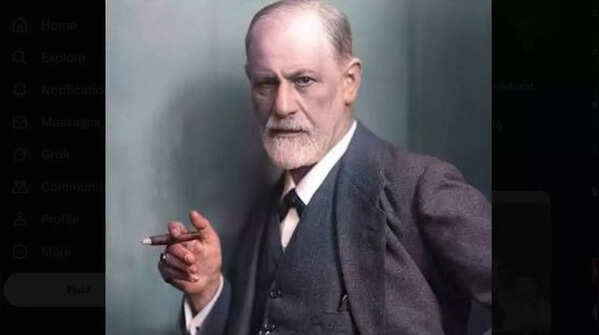More than dreams: 10 Sigmund Freud quotes that dive deep into human nature

Freud and his contributions to understanding of human psyche
On May 6 we celebrate the birth anniversary of one of the most revolutionary minds- Sigmunf Freud. The man, who gave birth to psychoanalysis, was not just a pioneering neurologist. He was a cultural force who reshaped the way we understand the human psyche, identity, and behavior. Freud's ideas was bashed as uncomfortable and disconcerting, however they hold a respectable place in modern times.
Freud dared to explore the unconscious mind at a time when it was barely recognized. He invited patients to speak freely from the couch in his Viennese office, encouraging them to share their thoughts, memories, and dreams without censorship. Through this method, he uncovered the hidden as well as complex layers of desire, repression, and conflict that, he believed, shaped much of human behavior. It was Freud who first insisted that truly listening—deeply and without judgment—was key to healing the psyche.
Though his work has sparked decades of debate and reinterpretation, Freud’s influence remains profound. He painted an unflinching picture of the mind as a battlefield between instinct and reason, between what we know and what we try to hide.
Freud’s life, too, was shaped by upheaval. In 1938, as the Nazis took over Austria, he was forced to flee Vienna. He spent his final year in London, where his home at 20 Maresfield Gardens—now the Freud Museum—preserves his library, collections, and the original psychoanalytic couch that launched a revolution.
To honor his birthday, let us look at 10 quotes that offer a window into Freud’s extraordinary mind—

1. “It might be said of psychoanalysis that if you give it your little finger it will soon have your whole hand.”
Introductory Lectures on Psychoanalysis (1916–1917)
Here, Freud uses a humorous metaphor to describe the very nature of psychoanalysis. Once a person begins exploring their unconscious mind, the process can quickly become all-consuming, revealing deeper and deeper layers of repressed thoughts and desires. This reflects Freud’s belief that psychoanalysis is not a casual tool—it requires full engagement and honesty.

“The voice of the intellect is a soft one, but it does not rest until it has gained a hearing.”
The Future of an Illusion (1927)
This quote captures Freud’s faith in reason and the human capacity for insight. Even though rational thought may seem weak in the face of strong emotions and social dogma, Freud believed it would eventually prevail. This idea underpinned his broader critique of religion and superstition, advocating for a more rational and psychologically informed society.

“The dream is the (disguised) fulfillment of a (suppressed, repressed) wish.”
Dream Psychology: Psychoanalysis for Beginners (1921)
Freud's revolutionary theory of dreams suggested they are not meaningless but rather serve to fulfill hidden desires that are too uncomfortable for the conscious mind to face.

“The ideas so far produced are insufficient for the interpretation of the dream.”
Dream Psychology: Psychoanalysis for Beginners (1921)
This quote reflects Freud's intellectual humility and openness to refining his theories. While he had groundbreaking ideas about dreams, he acknowledged that there is much more to be discovered, discussed and debated and his theories are not absolute.

“One day, in retrospect, the years of struggle will strike you as the most beautiful.”
Letter to Carl Jung, 1907
Written in a private letter to his disciple Carl Jung, this quote reveals Freud's personal side. In here he acknowledges that tragedy and struggles only help person grow into a better version of themselves.

“Unexpressed emotions will never die. They are buried alive and will come forth later in uglier ways.”
Widely attributed to Freud, though source is debated
This quote reflects Freud’s central idea of emotional repression. He argued that feelings that remain unprocessed don't simply vanish if we don't address them. They have a way of coming back and the effect will be more dramatic than you could ever imagine.

“No, our science is no illusion. But an illusion it would be to suppose that what science cannot give us we can get elsewhere.”
The Future of an Illusion (1927)
In The Future of an Illusion, Freud reaffirms his faith in science and rational inquiry, while simultaneously critiquing religious belief as a psychological projection of human desires and insecurities.

“Where does a thought go when it's forgotten?”
Attributed to Freud; rooted in his work on the unconscious
In his studies on repression and memory, Freud suggested that forgotten thoughts don’t vanish but are stored in the unconscious, influencing our actions in hidden ways.

“The virtuous man contents himself with dreaming that which the wicked man does in actual life.”
The Interpretation of Dreams (1900)
In this insane observation, Freud suggests that even those who appear morally upright harbor unconscious desires similar to those acted upon by the so-called wicked. However a good person, instead of channeling it into his actions, gives it an outlet through their dreams.









